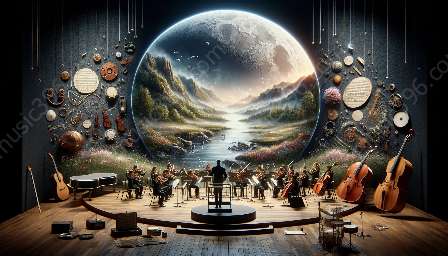In recent decades, hip-hop has become a driving force in music culture, influencing the evolution of music genres and leaving an indelible mark on the industry. This genre, which originates from the streets of New York City, has continuously transformed over the years, reflecting societal changes and paving the way for other music styles. To understand the full impact of hip-hop, it's essential to explore its evolution, its influence on music genres, and its significant references in music, which continues to shape the cultural landscape of today and tomorrow.
The Birth of Hip-Hop
The roots of hip-hop can be traced back to the 1970s in the Bronx, where DJs and MCs, often referred to as rappers, began experimenting with mixing and blending music, creating a new form of musical expression. At block parties and nightclubs, this innovative art form gained popularity, and it soon became a platform for addressing social and political issues that were prevalent in the urban communities of the time.
With its emphasis on storytelling and rhythmic poetry, hip-hop quickly became a voice for marginalized communities, advocating for change and empowerment. This powerful narrative and rhythmic beat laid the groundwork for the future evolution of hip-hop and its influence on music genres.
The Evolution of Hip-Hop
As hip-hop culture continued to evolve, it diversified into various styles and subgenres, each with its unique characteristics and influences. From the rise of gangsta rap in the 1980s, characterized by its raw and gritty depiction of urban life, to the emergence of conscious rap, which tackled social issues and promoted positive change, the genre continued to expand its artistic boundaries and reach a global audience.
In the 1990s, the fusion of hip-hop with other musical genres, such as R&B, jazz, and rock, led to the creation of new and innovative sounds, further solidifying its impact on music culture. This era also saw the elevation of hip-hop as a mainstream genre, with artists like Tupac Shakur, The Notorious B.I.G., and Wu-Tang Clan, leaving an enduring imprint on the music industry.
The Influence on Music Genres
One of the most significant aspects of hip-hop's evolution is its influence on other music genres. The genre's ability to adapt and cross-pollinate with different styles has had a profound impact on the music landscape, giving rise to new and hybrid genres that continue to shape contemporary music.
From the incorporation of hip-hop elements in pop music to the fusion of rap and rock, the influence of hip-hop on music genres has been far-reaching. This integration has not only expanded the sonic possibilities of various genres but also introduced new perspectives and voices to the music industry, creating a rich tapestry of musical expression.
Hip-Hop's Influence on Music References
In addition to its impact on music genres, hip-hop has also left an indelible mark on music history through its influential references and samples. Artists and producers have continuously drawn inspiration from hip-hop, incorporating its rhythms, beats, and lyrical styles into their own creations, thereby paying homage to its enduring influence.
Furthermore, hip-hop's influence extends beyond the music itself, permeating fashion, visual arts, and even language, shaping the cultural landscape in profound ways. The genre's ability to reflect and comment on contemporary society has solidified its place as a cultural force, with its references permeating various artistic mediums and resonating with audiences worldwide.
The Continuing Impact
In the present day, hip-hop continues to be a dominant and influential force in music culture, shaping the soundscape of global music and inspiring new generations of artists. Its evolution from its humble beginnings to a global phenomenon underscores its enduring relevance and staying power, cementing its status as a transformative and boundary-pushing genre.
As hip-hop remains at the forefront of musical innovation, its impact on music genres and references continues to be felt across diverse artistic expressions, ensuring its place in the annals of music history for years to come.









































